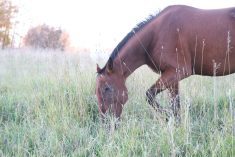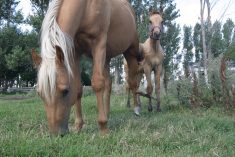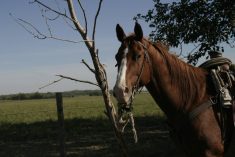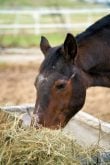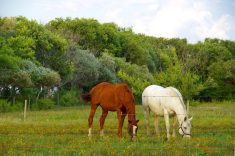Horses, like humans, can experience anxiety and become emotionally distressed.
Anxiety affects their focus, behaviour and performance, and can also have a profound impact on their health and soundness.
There is growing interest in the use of calming supplements to manage horse anxiety and stress levels. However, these remedies may provide only temporary relief without identifying and addressing the underlying issue.
Read Also
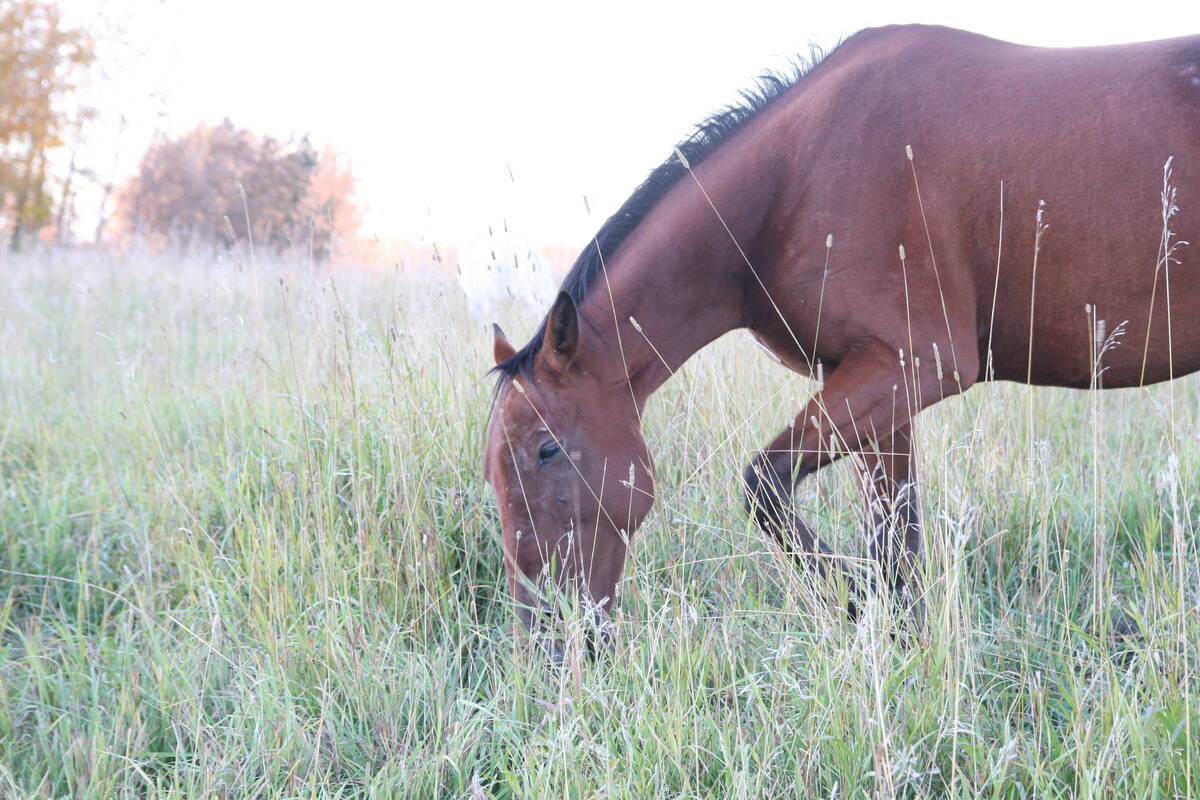
Beware giving horses too much iron
Horses consuming too much iron through diet or well water risk health problems like laminitis. Mineral testing forage and water is good practice for owners.
These are naturally sensitive animals, and their susceptibility to anxiety is heightened when their basic needs (often referred to as the three Fs — forage, friends and freedom) are not properly met.
The reasons for their anxiety and the ways in which it manifests can vary greatly. Managing anxiety requires taking each animal’s preferences into account when it comes to food, socialization with other horses and ability to move freely.
It is essential to recognize and understand the ways anxiety can present itself. Some may exhibit pacing, head tossing, mental dissociation and vocalization. Others may show less obvious signs and instead withdraw, mentally shut down, carry physical tension or develop physical symptoms such as stomach ulcers, hindgut ulcers, recurrent colic, loose stools, intermittent diarrhea, lameness or stereotypic behaviours.
Sport horses tend to experience more anxiety than those who live in pastures with other horses. This is because the demands of transportation, competition, work and housing conditions are so far removed from their innate nature. Such horses are at greater risk for developing gastric ulcers and hindgut issues, both associated with stress and anxiety.
Their diet and feeding habits, and how they are fed, has a significant impact upon their anxiety levels. For instance, too many processed feeds, grains and/or synthetic supplements can result in excessive carbohydrate intake and mental overstimulation. This is similar to children who consume too much sugar or processed foods.
Meal-feeding can trigger anxious behaviour by disrupting their gut microbiome and digestive flow. This can cause inflammation in their gut and throughout their body, which can further unsettle them and potentially lead to health ailments such as dysbiosis and ulcers.
Conversely, promoting healthy digestion can have a calming effect. Offering free-choice, low-calorie, long-stem forages and healthy fats, such as flaxseed, can enhance digestive health.
Horses that are well socialized within consistent herd environments generally exhibit less anxiety, are more content and show greater willingness to interact with human handlers. They seem to share a similar trait with children in that they are better able to remain calm, focused and receptive to learning once their needs for physical activity and movement have been satisfied.
Before deciding to use calming supplements, it is prudent to assess the horse’s overall health and to seek advice from a veterinarian. Once underlying causes of stress, such as health issues, husbandry practices, environment deficiencies, training and handling techniques have been addressed, calming supplements may be beneficial as part of a comprehensive management program.
Supplements that aim to alleviate anxiety and nervousness in horses are typically formulated with a combination of natural or herbal ingredients known for their calming effects on the nervous system. These supplements come in different forms, including powders, pellets, pastes and liquids, and can be given orally or mixed with feed.
Common ingredients in these supplements include magnesium, B vitamins like thiamine (B1), riboflavin (B2), and niacin (B3), milk proteins like L-tryptophan and alpha-casozepine and herbs like chamomile and valerian root.
Lavender essential oil and Bach’s Rescue Remedy, which blends flower essences, have also been found to support the horse’s nervous system and potentially have a calming effect.
One of the most effective methods for owners or handlers to encourage calm behaviour is to remain calm themselves. Horses are naturally attracted to a sense of inner peace and tranquility, and they can recognize and respond to it in others.
Calmness is an essential aspect of horsemanship and should be the foundation for all horse-related activities.
Carol Shwetz is a veterinarian focusing on equine practice in Millarville, Alta.




